- Home
- slideshows
- miscellaneous
- We got a look at the pitch deck of buzzy Silicon Valley health-tech startup Sempre Health. It reveals how a $4 billion industry is ripe for disruption.
We got a look at the pitch deck of buzzy Silicon Valley health-tech startup Sempre Health. It reveals how a $4 billion industry is ripe for disruption.
Sempre Health's pitch deck opens with this image, a nod to the way it uses text messages to communicate with patients.

When patients don't take their medicines, it's bad for their health and can be costly for the healthcare system. Sempre emphasizes this as part of its opening pitch to investors as a problem that the startup can solve.
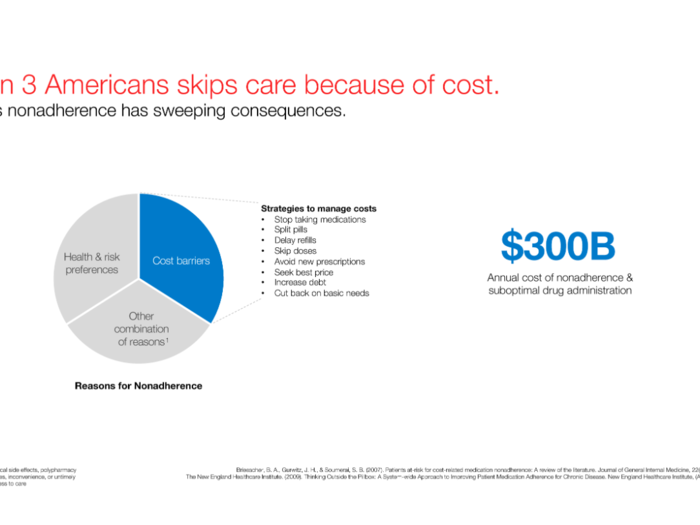
Sempre's third slide takes aim at the drug coupons offered by pharma companies to lower patients' out-of-pocket costs, and puts a big price tag on the problem: $4 billion.
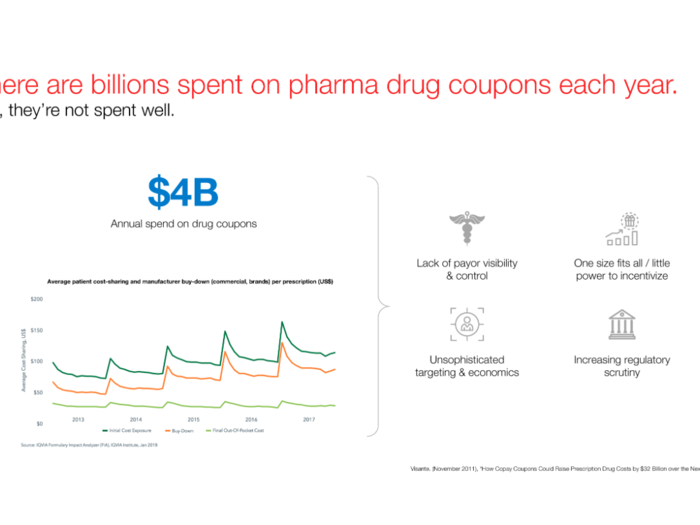
These so-called co-pay coupons are controversial.
Health insurers, for instance, say they help push patients to take more expensive drugs, increasing the cost to the system.
The Sempre pitch deck alludes to this divisive debate, and sets up its platform as something that can solve these problems.
Putting a price tag on it, of $4 billion, is also key. With venture capital investors, "it has to be a large market to be a good deal," explains CEO Mathur. "Pitching is part of articulating that story."
After building a case for a problem afoot in the US health system, this slide quickly sets up Sempre and its platform as a solution.
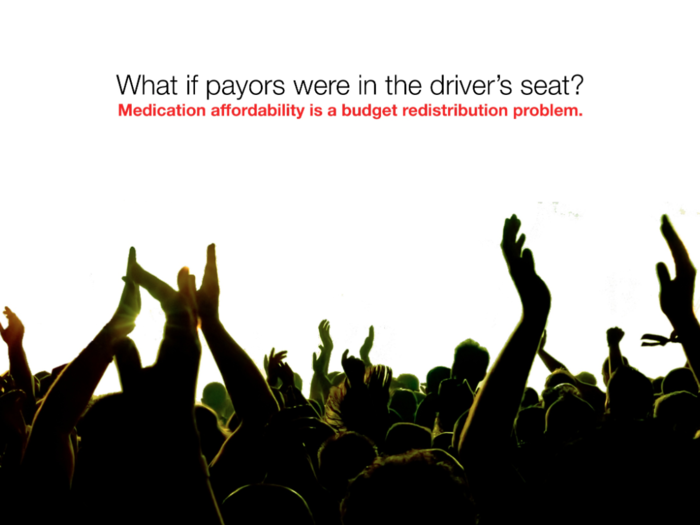
Sempre presents its product as a solution to unaffordable prescriptions keeping patients from taking their medications.
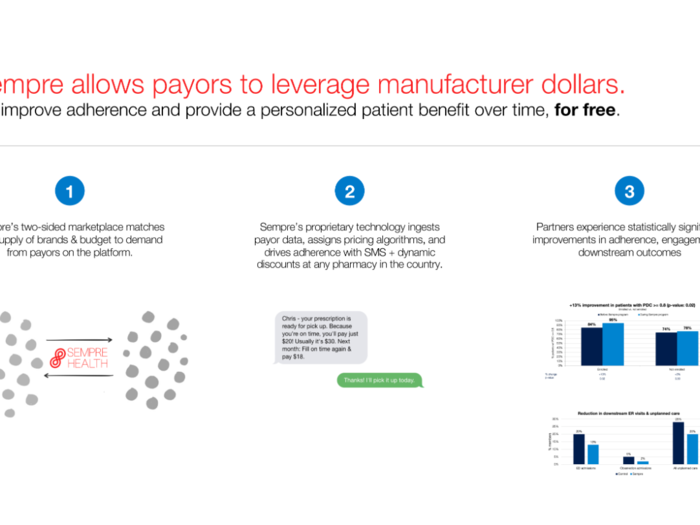
Sempre uses money that pharma companies would typically spend on co-pay coupons, and redirects it to make prescriptions cheaper for patients.
Sempre's pitch deck emphasizes that the startup is providing a valuable service for its members, or patients who benefit from the discounts.
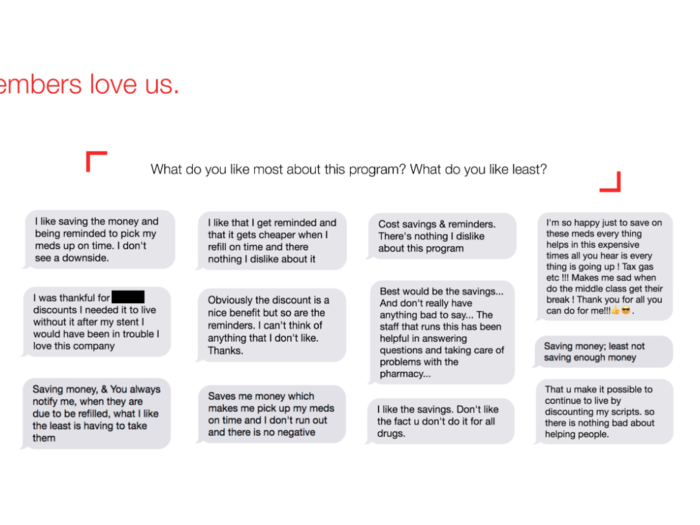
The testimonials from members say that they like getting the discounts as well as reminders to fill their medications.
Proving that the startup has traction is key, according to Mathur. Even if investors don't fully understand the space Sempre works in or the problem they're solving, it's hard to argue with the fact that people are using it and liking it.
"If we can provide a valuble and immediate service to our members, that's what gets us our members, thats what gets us our partners," she says.
The pitch deck also emphasizes the value of Sempre for payers, or health insurers. Those factors include patients taking their drugs on schedule and that the service works with health insurers' lists of drugs that they cover. Oh, and the fact that it's free for their use doesn't hurt.

Much of the pitch deck is focused on proving that the startup, which was founded in 2015, has gained traction among users, health insurers and pharma companies.
Sempre says that patients who use its platform are more adherent, or take their medications as prescribed by their doctors.
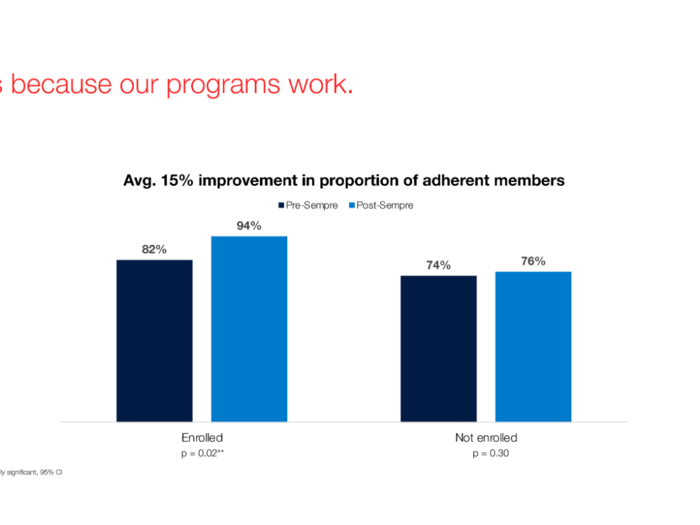
Digital health platforms have notoriously low levels of patient participation. Sempre says it's been able to buck the trend, with 35% of those eligible enrolling and 92% of those using the program to fill at least one prescription.
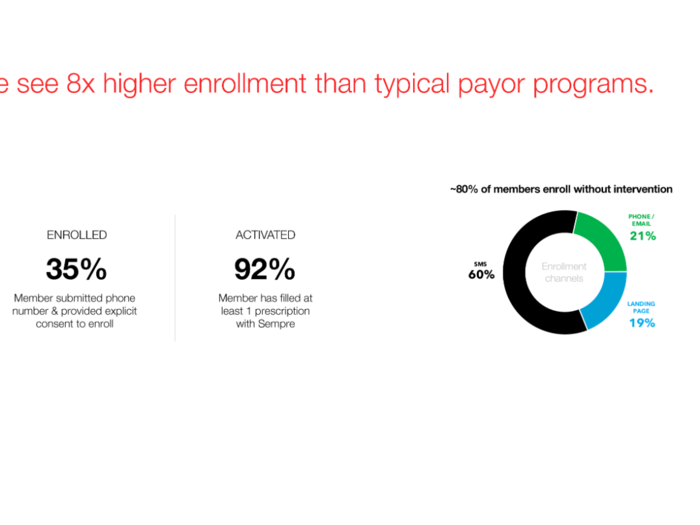
This slide illustrates how Sempre communicates with patients about the discounts available. The incentive structure is shown in the bottom graph, with patients who fill their prescriptions on time getting bigger discounts on their co-pay.
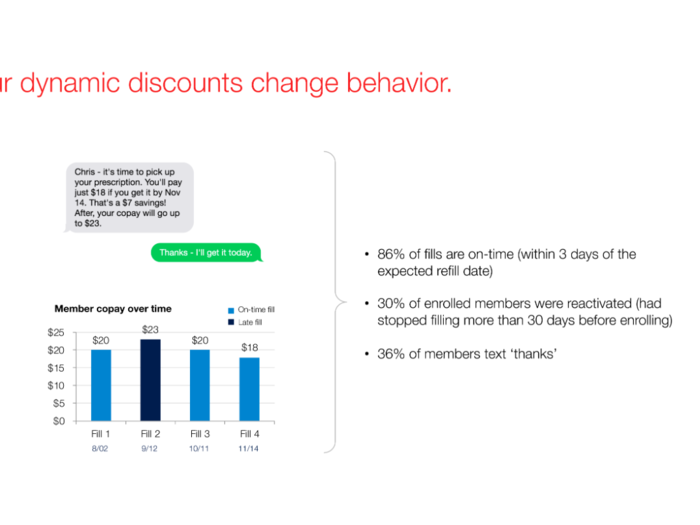
Sempre says that the discounts also help keep patients healthier, and out of the emergency department.
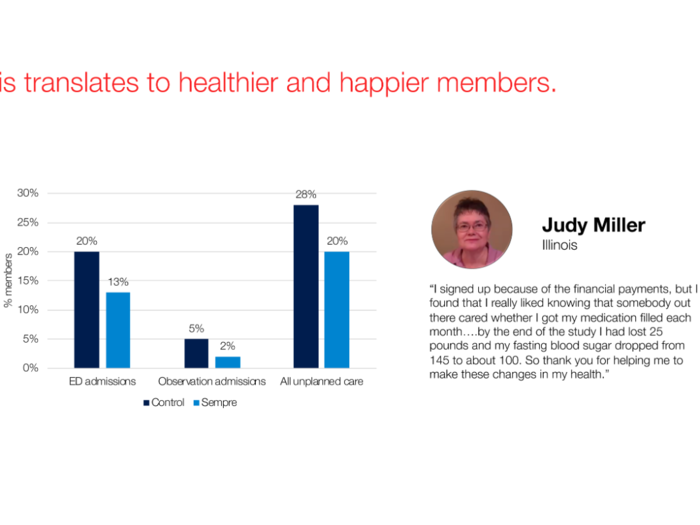
This slide states Sempre's value proposition, of letting people benefit financially from filling their prescriptions on time.

CEO Mathur describes the discounts as a "carrot" to drive better health decisions.
"Never a stick, just a carrot," she says. "And assuming you continue to fill on time, you can drive down your co-pay substantially."
Sempre works with different players across the health system. This slide positions that model as aligning everyone's different incentives towards a common goal: getting patients to take their medications and stay healthy.
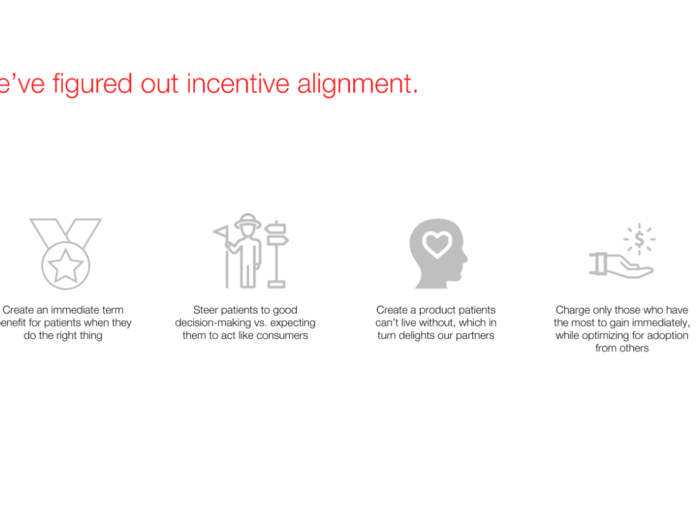
That model is underwritten largely by pharma companies, which pay — as the deck explains — because they "have the most to gain immediately." Pharma companies can't make revenue if patients can't afford their prescriptions.
The way that Sempre works across different healthcare players makes it an attractive investment, says Ray Ko, a partner at Social Capital, which led Sempre's 2016 seed round and participated in its series A last summer, and Sempre board member.
"We looked at a ton of drug delivery companies like the PillPacks of the world. And those are interesting, but didn't really align all the folks that exist in this system" as Sempre does, Ko told Business Insider.
This also makes it easier for Sempre to add new partners, whether they are health insurers or pharma companies, Ko says. He uses the metaphor of a mall, where having many different stores will attract a mix of different types of customers.
"Every new drug they add to the system will attract the next payer," and vice versa, he said. Facebook and Slack are very different products but something they share with Sempre is that "every participant that gets added to the system incentivizes other participants to join and participate."
This slide sums up Sempre's business model for investors, explaining the way it works across patients, health insurers and drug companies, and why each of those want to participate.
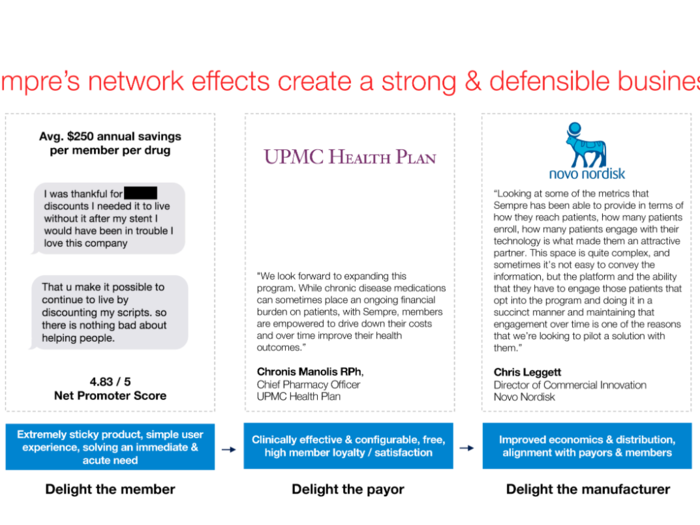
This slide, the second to last of the pitch deck, pivots to focus on the startup's future opportunities in different pharmaceutical markets.
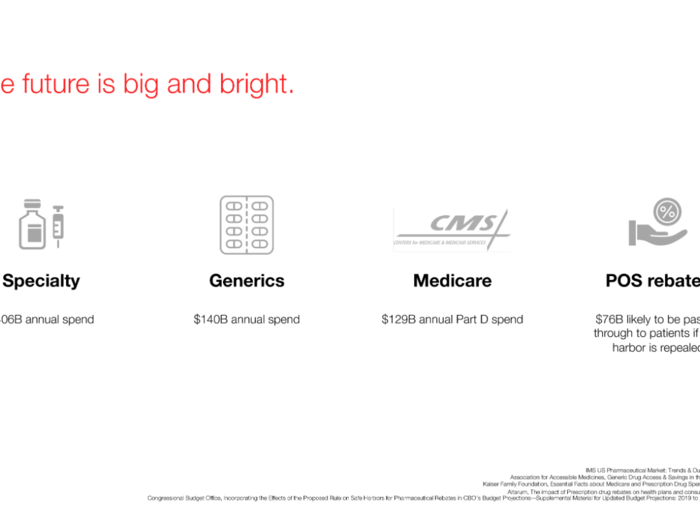
"The message really is: Here's what we've done so far, and here's really the next step of the full potential of Sempre," Mathur says.
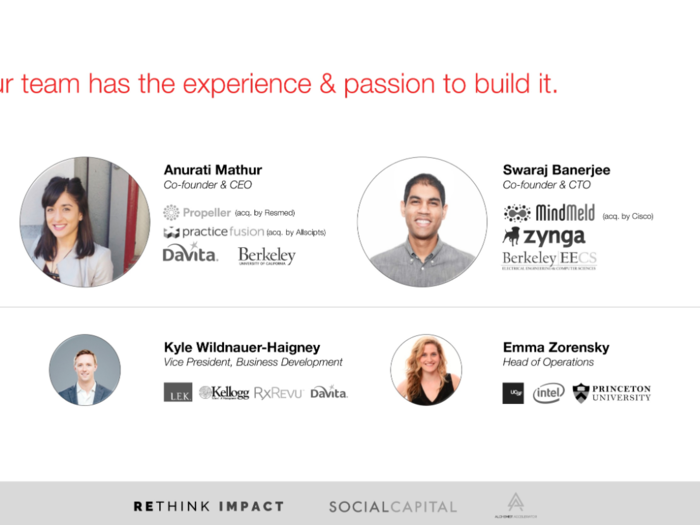
Popular Right Now
Popular Keywords
Advertisement